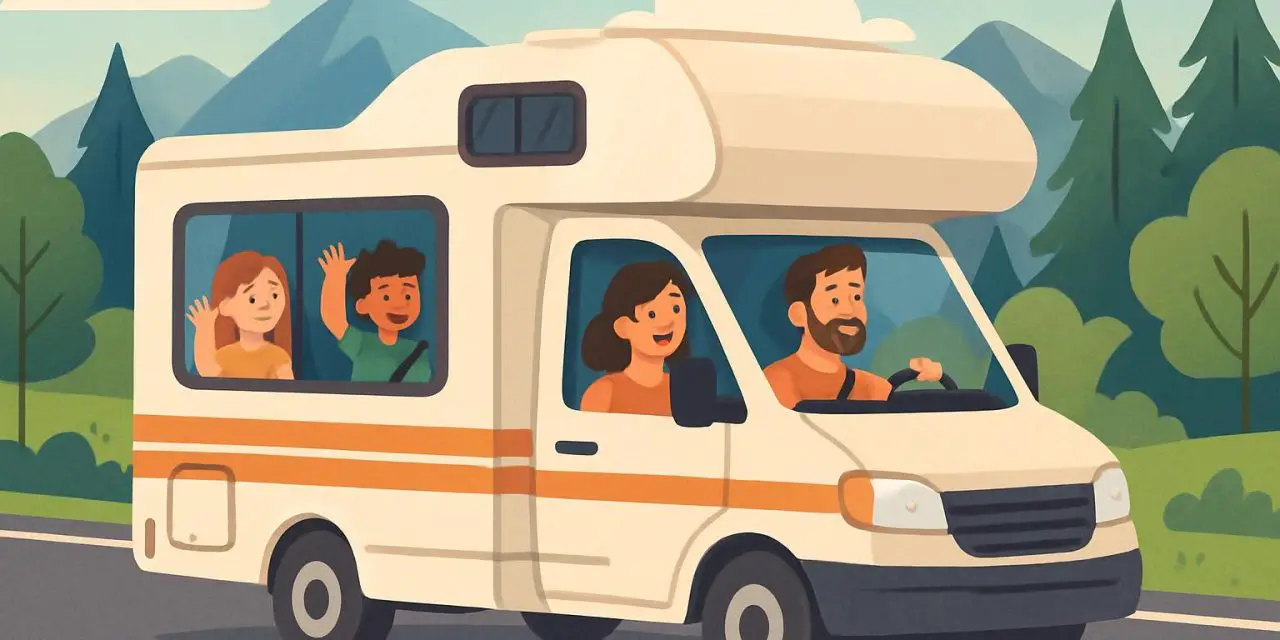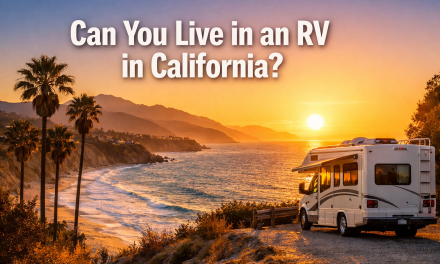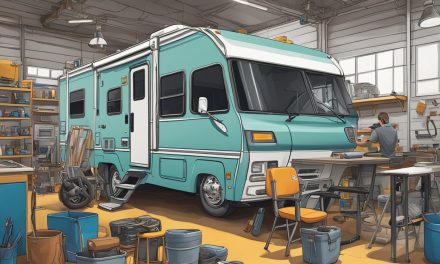Are you an RV enthusiast who loves hitting the open road? The freedom of RV travel is truly amazing, allowing you to explore new places and create unforgettable memories. However, just like driving any other vehicle, there are rules and regulations specifically for RVs that you need to know. Ignoring these rules, even by accident, can lead to unexpected tickets or even dangerous situations.
This article will help you understand some of the most important RV rules and how to stay on the right side of the law, ensuring your adventures are always smooth and worry-free. Let’s dive in and make sure your next RV trip is all about fun, not fines!
Would you like to save this article?
1. Size and Weight Limits: Don’t Get Caught Oversized!
Did you know that the size and weight limits for RVs can change drastically from one state to another? It’s true! Imagine driving your beautiful RV, only to find out it’s too tall for a bridge or too heavy for a road.
This isn’t just a minor inconvenience; it can lead to hefty fines and even dangerous situations. For instance, while many states allow motorhomes up to 40 feet in length, some permit up to 45 feet, and others have even stricter limits.
The maximum height is often around 13 feet 6 inches, but always double-check your route!
When you’re planning your trip, it’s like packing for a long journey – you need to know the rules of the road for every state you’ll visit. It’s almost as if each state has its own secret handshake for RVs, and you’re expected to know them all!
2. Triple Towing: More Isn’t Always Merrier
Triple towing means pulling two trailers behind your RV. Think of it like a train, but on the highway! While it might seem like a great way to bring all your toys along, this practice is highly regulated and illegal in many states, especially on the East Coast. However, in the wide-open spaces of the West, you’ll find more states that allow it.
For example, states like Alaska, Arizona, and Colorado generally permit triple towing, while states like Alabama, Georgia, and Florida do not. It’s like a secret club, and only certain states have the membership card!
Before you hook up that extra trailer, make sure you’re in a state that welcomes such a convoy. You wouldn’t want to be the star of a roadside drama, would you?
3. Parking Predicaments: Where Can You Park That Big Rig?
Finding a place to park your RV can sometimes feel like trying to fit an elephant into a phone booth. Many cities and towns have strict rules about where you can park your RV, especially overnight. You might think that big box store parking lot is fair game, but many have policies against overnight RV parking.
Some cities even have ordinances that prohibit RVs from parking on residential streets for extended periods. For example, some cities allow 24 to 72 hours of street parking, while others ban it completely. It’s like your RV is a celebrity, and everyone has an opinion on where it should (or shouldn’t) be seen!
Always check local regulations, or you might wake up to an unwelcome surprise on your windshield.
4. Road and Speed Restrictions: Not All Roads Are Created Equal
Just because a road looks open doesn’t mean your RV is welcome on it. Some parkways, tunnels, and scenic routes have restrictions on large vehicles like RVs, especially if you’re carrying propane.
Imagine planning a beautiful drive through a national park, only to find a sign saying ‘No RVs Allowed’! It’s like being invited to a party but then told you can’t bring your favorite dance moves.
Additionally, some states have different speed limits for vehicles towing trailers or for heavier vehicles. For instance, while cars might zip along at 70 mph, your RV might be limited to 60 mph in the same area. Always pay attention to road signs and check state-specific regulations before you hit the highway.
Your RV is a powerful machine, but it still needs to follow the rules of the road!
5. Required Safety Gear: Gear Up for a Safe Journey
Safety first, always! Just like you wouldn’t ride a bike without a helmet, there’s specific safety gear your RV needs to have, and these requirements can vary by state. This isn’t just about being prepared; it’s often the law. For example, many states require RVs to carry flares or reflective signs, a fire extinguisher, and a gas detector.
If you’re towing a trailer, things get even more specific: trailers over a certain weight (often 3,000 lbs) might need trailer brakes, a breakaway switch (which applies the brakes if your trailer detaches), and safety chains. It’s like your RV is a superhero, and these are its essential gadgets!
Always make sure your RV is equipped with the right safety gear for every state you travel through. A little preparation goes a long way in keeping you and others safe on the road.
6. Campground Rules: Your Home Away From Home Has Rules Too!
Even when you’ve reached your destination, the rules don’t stop! Every RV campground, whether it’s a national park site or a private resort, has its own set of rules. These can cover everything from quiet hours and generator use to pet policies and how you set up your campsite.
For example, many campgrounds have strict quiet hours, often from 10 PM to 7 AM, during which loud noises and generators are prohibited. Some may require your pets to be leashed at all times and have designated areas for pet relief. It’s like visiting someone else’s house – you wouldn’t just do whatever you want, would you?
Always check the campground’s specific rules upon arrival. Following these rules ensures a pleasant experience for everyone, making your RV community a happy one.
The RV-Specific GPS: Your Smart Co-Pilot
Navigating the world of RV regulations can feel like a maze, but there’s a tool that can make it much easier: an RV-specific GPS. Unlike regular car GPS systems, these devices are designed with RVs in mind. They can help you plan routes that avoid roads with height or weight restrictions, low bridges, or areas where propane tanks are prohibited. It’s like having a super-smart co-pilot who knows all the RV rules for every road!
This little gadget can save you from a lot of headaches and potential tickets, ensuring your journey is smooth and stress-free. Investing in one is like getting a cheat sheet for all those tricky RV laws.
SOURCES
- https://freedomheavyhaul.com/legal-limits-for-height-width-and-weight-by-state/
- https://fifthwheelst.com/rv-size-limits-equipment-laws-us.html
- https://www.recnationstorage.com/blog/how-tall-is-an-rv-a-complete-guide-on-rv-height-and-width/
- https://www.thervgeeks.com/triple-towing/
- https://rvlife.com/rv-triple-towing-laws/
- https://www.motorbiscuit.com/rv-triple-towing-which-states-allow-it/







